#presidential history
Note
Which President, in your opinion, was the most reluctant to seek the position? Which wound up hating it the most by the end of his term?
I am a strong believer that nobody truly becomes President of the United States "reluctantly". That's not exactly the kind of job that seeks you, especially the modern Presidency.
For a significant slice of American history, many of the people nominated for President acted as if they were being called upon to run when, behind-the-scenes, they were very active in building their campaigns and corralling supporters. Until the 20th Century it was frowned upon to openly run for the Presidency, but almost all of the Presidents wanted the gig.
I'd say that George Washington was probably more reluctant than most of his successors and likely would have preferred retiring to Mount Vernon after the Revolution, but I think he also recognized that he was the guy who needed to be the President that set the precedents. I think Ulysses S. Grant would have been perfectly happy to not be President, but once he was elected in 1868 he also wanted to keep the job. He even tried to run for a third term in 1880.
That 1880 election might have been the one case where the winner -- James Garfield -- genuinely wasn't interested in the Presidency at that point. He had gone to the Republican National Convention to support fellow Ohioan John Sherman (and defeat Grant's hopes for a third term) and gained some major attention after giving a well-received speech placing Sherman's name in nomination. When the candidacies of Sherman and James G. Blaine -- another anti-Grant candidate -- stalled, Garfield became a compromise choice and was eventually nominated on the 36th ballot. Garfield was apparently legitimately shocked by the events leading to him leaving Chicago as the GOP nominee.
By most accounts, William Howard Taft was far more interested in a potential seat on the Supreme Court than becoming President. At heart he was a judge and believed himself to be better suited for the judiciary than the Executive Branch. But Taft turned down three offers by Theodore Roosevelt to be appointed to the Supreme Court (in 1902, 1903, and 1906) because he felt obligated to complete his work as Governor-General of the Philippines and then Secretary of War. But Taft's wife desperately wanted him to become President and by the time of President Roosevelt's third offer of a seat on the Court, Taft was already being talked about as Roosevelt's hand-picked successor in the White House. And, as with all other Presidents, once he had a taste for the job, he didn't want to give it up, running for re-election in 1912 against his former friend, Roosevelt.
Gerald Ford is the only other President who hadn't spent a significant portion of his political career with his eyes on the White House. Ford spent nearly a quarter-century in the House of Representatives and his main ambition was to be Speaker of the House, but Republicans weren't able to win control of the House when Ford was in Congressional leadership positions. But even with Ford being a creature of Congress, he did attempt to put himself forward as a nominee for the Vice Presidency, first in 1960 and then in 1968, and Nixon kicked the tires on picking him as his running mate in 1960. No one wants to be Vice President without seeing it as a potential stepping stone to the Presidency, particularly at that point in history before Vice Presidents were empowered with some real influence within the Administrations they served in.
As for who wound up hating it by the end of their time in office, I think it's safe to say that John Quincy Adams didn't shed too many tears when he was defeated for re-election in 1828. And I'm sure he wouldn't use the word "hate", but nobody can convince me that George W. Bush wasn't thoroughly ready to escape Washington by late-2007. There were times in 2008 when he seemed like he just wanted to hold a snap election like they have in parliamentary systems and go home to Texas. If some Presidential insider published a book that said that Bush asked if he could just give the keys to the White House to Barack Obama in July 2008, I wouldn't be the least bit shocked.
On the other hand, if there were no term limits, Bill Clinton would have been running for President in every election since 1992 (and the crazy thing is that he's still younger than both of the presumptive 2024 nominees). I'm kind of surprised that he didn't make an effort to repeal the 22nd Amendment in the past 20 years. Clinton loved being President and was trying to find something Presidential to do until minutes before his successor was inaugurated in 2001.
#History#Presidents#Presidential Candidates#Presidential Nominees#Presidential Elections#Presidency#Reluctant Presidents#Politics#Political History#Presidential History#George Washington#President Washington#General Washington#Ulysses S. Grant#President Grant#General Grant#1880 Election#1880 Republican National Convention#James Garfield#President Garfield#William Howard Taft#President Taft#Chief Justice Taft#Gerald Ford#President Ford#John Quincy Adams#JQA#President Adams#George W. Bush#Bush 43
37 notes
·
View notes
Text
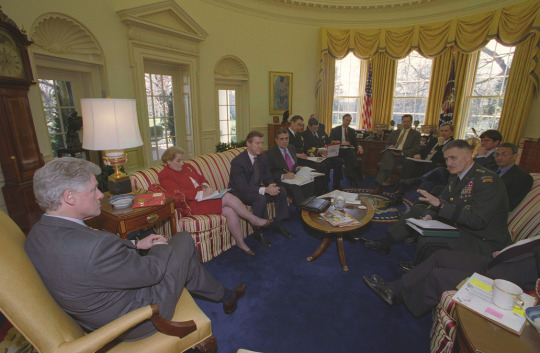
Photograph of President William Jefferson Clinton Participating in a Briefing on Kosovo
Collection WJC-WHPO: Photographs of the White House Photograph Office (Clinton Administration)Series: Photographs Relating to the Clinton Administration
Original caption: This item is a photograph of President William Jefferson Clinton participating in a briefing on Kosovo. Participants include Secretary of State Madeleine Albright, William Cohen, George Tenet, Sandy Berger, John Podesta, Jim Steinberg, and General Henry Shelton.
The briefing is taking place in the Oval Office. President Clinton sits in an armchair. His advisors sit on couches and other chairs. Madeleine Albright in a red dress is the only woman present. Three advisors wear military uniforms, the rest are in suits. Many hold papers or pads on their laps and are taking notes. The presidential seal is visible on the blue rug.
36 notes
·
View notes
Note
How accurate was Andrew Jackson’s “People’s President” moniker? Half my family lives in Eastern Oklahoma due to the Indian Removal Act.
So back in the 1940s, Andrew Jackson was seen as a genuinely populist figure - going to war with the Bank, inviting ordinary people into the White House, going after Calhoun and the Nullificationists, etc. See Arthur Schlesinger Jr's The Age of Jackson for this account by people who had been New Deal Democrats in the 1930s and were looking for their historical origins.
And then around 20 years later, a new generation of historians pointed out that Jackson's populism was entirely for the benefit of white people, which meant bloody oppression for the First Nations and a commitment to upholding slavery. To a new generation of historians, therefore the Jefferson-Jackson Democratic Republicans became seen not as a libertarian political party but a party of white supremacy.
This in turn would give rise to a new analysis of Jackson's political opponents who wanted a more active government in the economy aimed at broad-based debelopment, and who however unsteadily did speak out on behalf of the Cherokee or the escaped slave.
35 notes
·
View notes
Photo
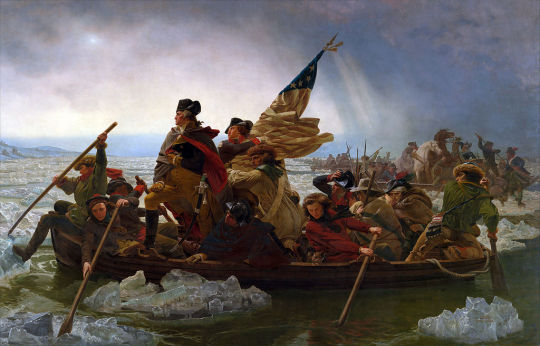
This Day in History: James Monroe’s Birthday
On this day in 1758, future President James Monroe is born. Did you know that Monroe was a participant in George Washington’s famous crossing of the Delaware River? Monroe was then only 18 years old.
He almost did not survive the experience.
The attached painting of the crossing is familiar and Washington is easily recognized. But did you know that the man standing next to Washington, holding a flag, is supposed to be Monroe? The story continues here: https://www.taraross.com/post/tdih-james-monroe
#tdih#otd#this day in history#history#history blog#potus#presidential history#America#freedom#American Revolution#sharethehistory
67 notes
·
View notes
Text
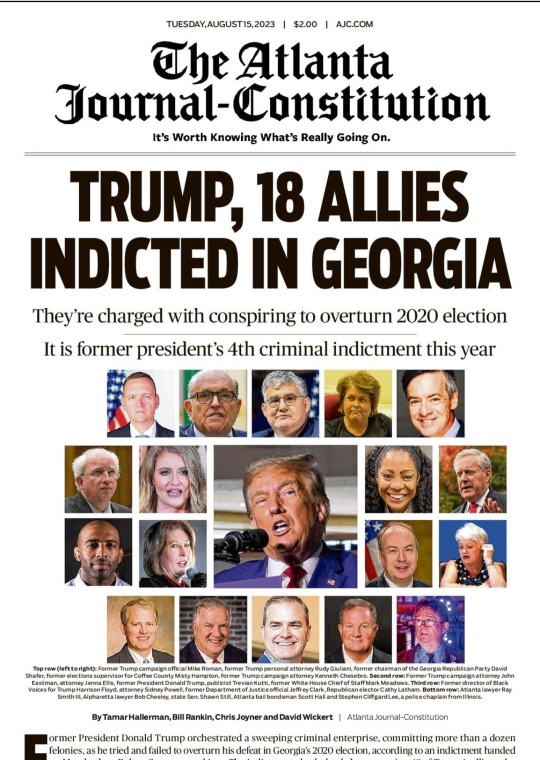
Former President Trump + 18 Allies Indicted in Georgia. Willis: "The grand jury issued arrest warrants for those who are charged. I am giving the defendants the opportunity to voluntarily surrender no later than noon on Friday the 25th day of August, 2023."
#us politics#american politics#donald trump#us elections#criminal case#georgia#atlanta georgia#president donald trump#presidential election#presidential candidate#presidential history#american history#us history#unitedstates#elections#politics#united states politics
18 notes
·
View notes
Note
Top 5 first ladies
Abigail Adams
Abigail Adams
Abigail Adams
Abigail Adams
Abigail Adams
It's just Abigail Adams all the way down, honestly. Anybody who could look at John "Definition Of The Word Curmudgeon" Adams and go all heart eyes is someone I want to study like a specimen under a microscope. I've seen one of her dresses on display; she was quite tall, only an inch shorter than him, and for some reason this delights me
also, you know. she was a stone-cold badass. so there's that
(I don't actually know a lot about the First Ladies of my country, to be honest. For some reason, Presidential history just...doesn't interest me that much? There's so much going on in the US, historically, that is barely affected by the President or the First Lady, and the topics that interest me most tend to fall under that category.)
#ask#anon#ask game#history#presidential history#US history#abigail adams#honorary mention to Rose Cleveland for being the earliest known gay First Lady#when she served in that capacity for her brother President Grover Cleveland (hostessing and such)#before his marriage#later got with an heiress named Evangeline Simpson#broke it off when she married and then shacked up again when her husband died
45 notes
·
View notes
Text
Happy new year I’m still dead
#john quincy adams#jqa#presidential history#us history#us president#adams family#happy new year#2024#new year#new year’s day#new years eve
4 notes
·
View notes
Text

President Truman receives a turkey from the National Egg and Poultry Board, 11/16/1949. Truman Library. NARA ID 200138.
Did Truman Pardon a Turkey?
The Truman Library has received many requests over the years for information confirming the story that President Truman "pardoned" a Thanksgiving turkey in 1947, thus initiating a Presidential tradition that continues to this day.
The presentation of a turkey to the President at Thanksgiving is a long-standing tradition. But these kids were not impressed.
Many believe that it was President Truman who first pardoned a turkey, but until President George H.W. Bush pardoned the turkey in 1989, the presented poultry was destined for the dining room!
In 1947, the National Turkey Federation and the Poultry and Egg National Board began presenting the White House with a turkey. Truman accepted the turkey…and most likely ate it.
Staff at the Truman Presidential Library have never found any documents, speeches, newspaper clippings, photographs, or other contemporary records in their holdings which refer to Truman pardoning a turkey.
However, after President Bush’s official announcement in 1989, the birds have retired to a farm after their moment in the spotlight.
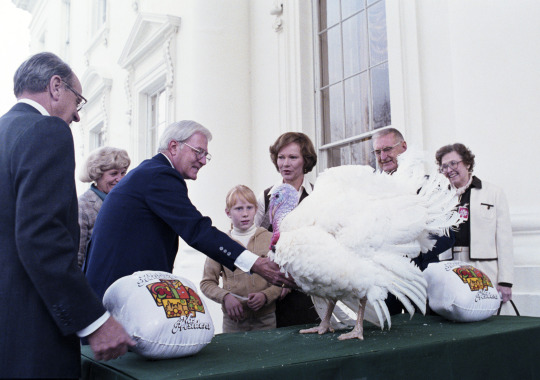
Amy and Rosalynn Carter meet with “Purdue Pete” and the National Turkey Foundation, 11/21/1978, Carter Library, NARA ID 6783240.
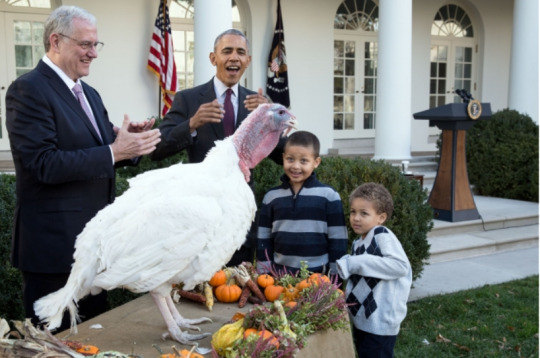
President Barack Obama and his nephews Austin and Aaron Robinson react to an unexpected commotion by Tot, the National Thanksgiving Turkey, during the pardon ceremony 11/23/2016, Obama Library, NARA ID 178713536.
See also: NARA's Thanksgiving-related online resources (National Archives News special topics page).
#thanksgiving#turkey#turkeypardon#white house#poultry#presidential history#presidents#Obama Library#Carter Library#bush library
33 notes
·
View notes
Text
This Day in History: February 4. On this day in 1789, George Washington was elected to serve as the first U.S. president by a unanimous vote in the first electoral college.
Before being elected president, Washington was reluctant to serve as the president of the new republic. Initially, Washington planned on retiring after his service in the American Revolution. However, the American people urged the former Commander in Chief of the Continental Army to run for office to lead the new nation.
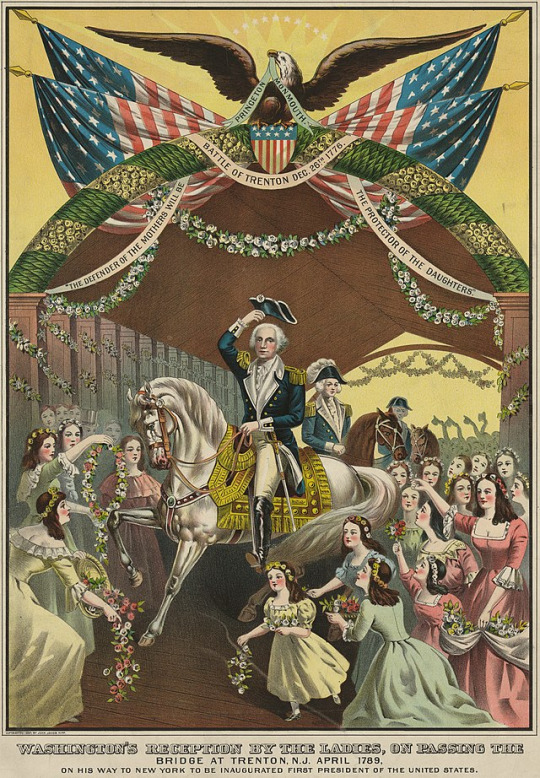
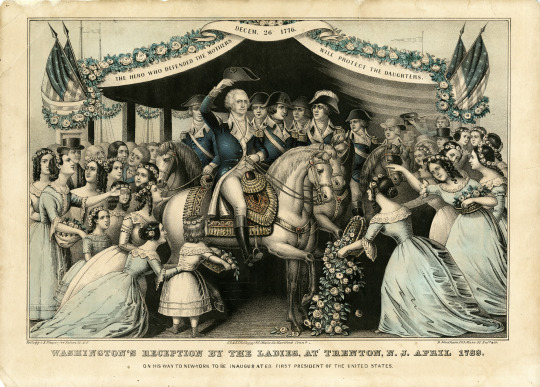
Both works of art were dedicated to Washington's first inauguration as president in April of 1789, on the balcony of Federal Hall in New York City, New York.
#this day in history#american revolution#george washington#founding fathers#american history#presidential history
5 notes
·
View notes
Link
John Quincy Adams was the sixth president of the United States, from 1825 to 1829. He was also a diplomat, a senator, a secretary of state, a congressman, and an antislavery advocate. But did you know that he dressed carelessly, was considered ill-mannered, and found group meditation a waste of time? My latest post looks at things you might not know about JQA.
11 notes
·
View notes
Text
The Old Lion: A Novel of Theodore Roosevelt by Jeff Shaara #ARC #BookReview #StMartinsPress #NetGalley
I know a lot about #TheodoreRoosevelt so I was curious about an upcoming #HistoricalFiction book, #TheOldLion by #JeffShaara. How much was right and how much was exaggerated? You'd be surprised. #NetGalley #ARC #BookReview #TeddyRoosevelt #USPresident
In one of his most accomplished, compelling novels yet, acclaimed New York Times bestseller Jeff Shaara accomplishes what only the finest historical fiction can do – he brings to life one of the most consequential figures in U.S. history – Theodore Roosevelt – peeling back the many-layered history of the man, and the country he personified.
From the mid-nineteenth century to the early twentieth…
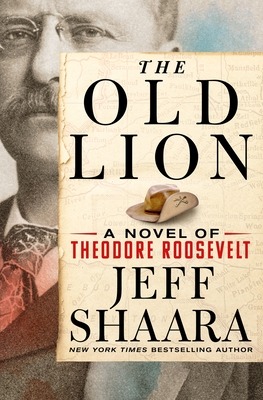
View On WordPress
#Alice Roosevelt#ARC#ARC Review#Badlands#Book Review#Gilded Age#Jeff Shaara#National Parks#NetGalley#New Books#Nobel Peace Prize#Post-Presidency#Presidential History#Presidents#Rio de Roosevelt#River of Doubt#Rough Riders#Spanish American War#St. Martin&039;s Press#Teddy Roosevelt#The Old Lion: A Novel of Theodore Roosevelt#Theodore Roosevelt#U.S. Politics#U.S. Presidents#Vice President
2 notes
·
View notes
Text
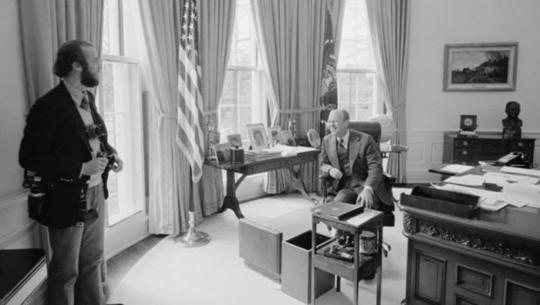
Awash in conflicting reports from unstable battlefronts, [President Gerald] Ford wanted a firsthand appraisal [on the situation in Vietnam] from someone he could trust. General [Frederick] Weyand was his chosen emissary. "You are not going over to lose," he instructed Weyand, "but to be tough and see what we can do." Ford conceded that any military options were severely limited. "I regret I don't have the authority to do some of the things President Nixon could do," he remarked wistfully. As the Oval Office emptied, photographer David Kennerly stayed behind. "You know, I would really like to go with the General," he said. Ford needed no persuading. As a journalist, and a friend, with extensive knowledge of the region from his two-year stint as a combat photographer for UPI, Life and Time, Kennerly could be counted on for an honest assessment of events -- more honest, perhaps, than that of diplomats and military men -- and with it, the pictures to back him up. Kennerly returned to his first-floor office with a sign dangling from his neck. GONE TO VIETNAM. BACK IN TWO WEEKS.
That evening the irreverent photo hound dubbed Hot Shot by the Secret Service appeared in the upstairs family quarters to say goodbye. Ford threw a protective arm around the young man's shoulders.
"You be careful. You have everything you need?"
As a matter of fact, Kennerly's pockets were empty. Local banks were closed and he could use some cash. Ford opened his wallet and handed over its contents, $47, as Betty Ford gave Kennerly a hug. He was striding toward the door when the President called out his name. "Here," said Ford, tossing Kennerly a quarter. "You might as well clean me out."
-- Richard Norton Smith, on White House photographer David Hume Kennerly's interactions with President Gerald Ford after Kennerly asked to accompany a General on a fact-finding mission to Vietnam in March 1975, shortly before the Fall of Saigon, An Ordinary Man: The Surprising Life and Historic Presidency of Gerald R. Ford (BOOK | KINDLE | AUDIO)
#History#Presidents#Gerald Ford#President Ford#Ford Administration#Gerald R. Ford#David Hume Kennerly#White House Photographers#Presidential History#Vietnam#Vietnam War#Richard Norton Smith#Books About Presidents#Presidential Biographies#An Ordinary Man: The Surprising Life and Historic Presidency of Gerald R. Ford#An Ordinary Man#Presidency#White House History#HarperCollins#Betty Ford#First Ladies#Ford Family#Fall of Saigon#Vietnam War History#Operation Frequent Wind
17 notes
·
View notes
Text

A reminder that Karl Marx was a strong supporter of democracy and freedom!
🇺🇸☭
#history#karl marx#abraham lincoln#labor day#american civil war#socialism#american history#politics#anti slavery#historical figures#emancipation proclamation#socialist history#historical documents#united states#us president#workers unite#revolutionary socialism#presidential history#american anti slavery war#nickys facts
3 notes
·
View notes
Text
THE TRUMP TRILOGY IS HERE!
RECLAIM AMERICA’S ESSENCE WITH MAGAMARKT’S EXCLUSIVE OFFER. IMMERSE IN THE DIGITAL TRILOGY, REDISCOVER PATRIOTIC SPIRIT, AND JOIN A COMMUNITY UNITED TO RECLAIM THE HEART OF THE NATION. THIS IS MORE THAN KNOWLEDGE, IT’S A PATRIOTIC JOURNEY WORTH SEIZING!OBTAIN THE TRUMP TRILOGY & THE TRUTHFUL NEWS SUBSCRIPTION AND ENJOY THE FREE BONUS, ALL FOR JUST $5 AND ENJOY A 7-DAY ACCESS. ONCE YOUR TRIAL…

View On WordPress
#American Narrative#American Politics#Conservatism#Contemporary Politics#Electoral Campaigns#Electoral Strategy#Political Analysis#Political Biographies#Political Influence#Political Leadership#Political Memoirs#Presidential History#Presidential Speeches#Public Figures#Republican Party#Trump Administration#Trump Collection#Trump&039;s Legacy.#US Elections#US Government
0 notes
Text
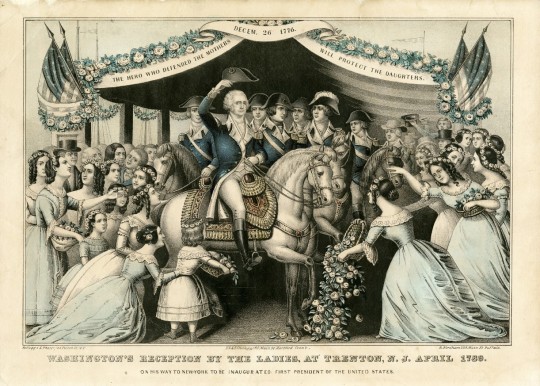
This Day in History: Washington's Call to Service
On this day in 1789, George Washington receives a letter from his friend Henry Knox. The two had been awaiting the outcome of our country’s first presidential election.
Those results were supposed to be a secret, at least until the first Congress counted the electoral votes. Naturally, word got out anyway.
“It appears by the returns of elections hitherto obtained,” Knox wrote, “which is as far as Maryland southward that your Excellency has every vote for President.”
Washington didn’t want to go, but he placed his own feelings aside.
The story continues here: https://www.taraross.com/post/tdih-washington-accepts-call
#tdih#otd#this day in history#history#history blog#America#U.S. Constitution#POTUS#presidential history#george washington#sharethehistory
11 notes
·
View notes
Text
The Hoover-Minthorn House
“Oregon lives in my mind for its gleaming wheat fields, its abundant fruit, its luxuriant forest vegetation, and the fish in its mountain streams. To step into its forests with their tangles of berry bushes, their ferns, their masses of wild-flowers stir
Of the 46 presidents who have steered the helm of the United States, only one has ever hailed from the Pacific Northwest.
The 31st president of the United States, Herbert Hoover, was born in West Branch, Iowa on August 10th, 1874 into modest beginnings; not so much because his family was poor, but because their beliefs honored humility. Herbert’s father, Jesse Hoover, was a blacksmith turned…

View On WordPress
#herbert hoover#Historic places#Historical buildings#newberg oregon#Oregon History#presidential history#Willamette Valley
0 notes